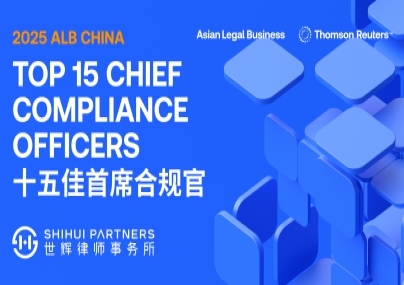As China accelerates the opening up of its $45 trillion financial sector, global players are eyeing a share of the pie. However, lawyers say that while liberalization brings opportunities, it also leads to increased regulatory requirements.
In November we saw several foreign-funded financial institutions entering China’s finance sector, or increasing the size of the stakes in their joint ventures in that sector.
On Nov. 30, the China Securities Regulatory Commission (CSRC) approved UBS’ application to increase its shareholding in its securities joint venture in China - UBS Securities Co - from the current 24.99 percent to 51 percent, becoming the first foreign securities firm to take majority stake in a JV in China.
On Nov. 23, the China Banking and Insurance Regulatory Commission (CBIRC) approved Allianz's application to begin setting up Allianz (China) Insurance Holding Company Ltd, which will become the first foreign-funded insurance holding company in China. Allianz chief executive Oliver Bate said in a statement that the move was a “significant milestone” and the group expected the holding company to be established in 2019.
On Nov. 9, the Chinese central bank approved a joint venture application from American Express in China to commence operational preparations for a card-clearing institution in the country.
Also on Oct. 12, CSRC approved JP Morgan’s application seeking to set up a new, fully-integrated securities firm, in which it would have a 51-percent stake, eventually raising its ownership to 100 percent over the next few years.
China has been undertaking a series of liberalization efforts in its finance sector since early this year. In May, CBIRC and CSRC issued implementing regulations on the relaxation of foreign investment in banking institutions, securities companies, fund management companies, futures companies and insurance brokerage firms.
PRUDENCE JUSTIFIED
Since then, China has been following through with its promises by accelerating its liberalization efforts to its finance sector. Given the size of its financial sector ($45 trillion), even a sliver can be lucrative. But many companies are still taking a wait-and-see approach.
The prudence is perhaps justified, says Jay Ruan, a counsel, with FenXun Partners in Shanghai. “Foreign financial institutions need to be aware that liberalization also means increased regulatory requirements,” he says. “There are several trends worth noting: Firstly, the regulators have imposed much stricter requirements in terms of corporate governance for financial institutions. Secondly, Chinese financial regulators have been gradually stepping up the requirements on real-name identification of financial customers. Thirdly, the asset management businesses of all kinds of financial institutions are subject to more stringent requirements by the People's Bank of China.”
Fan Lei, a counsel, with FenXun, adds: “Since foreign investors are unfamiliar with China’s regulatory environment, and the way of work and culture of local regulators. They may need to spend extra efforts to accustom to the new trends of regulation.”
The establishment of Allianz (China) Insurance Holding Company Ltd can provide of example of the experience foreign companies can expect. The German firm was advised by Dentons Shanghai, with the team led by senior partners Feng Chen, Junming Chen, Bin Zhao, and partner Yan Zhao.
“As this is the very first foreign insurer to commence the establishment of a holding company in China, there are no any precedence for our reference,” says Feng. “Our team did meet some practical obstacles and thorny issues in the application, for example, China’s current Insurance Group Management Regulations don’t apply to foreign applicants in China market, while China’s current Foreign-funded Insurance Management Regulations don’t stipulate relevant policies.”
“Allianz’s move was indeed a milestone one, which provides a good sample for other foreign-funded insurers and other foreign financial institutions as well. For those foreign-funded insurers that have their presences in China for many years will have more competitive advantages over the newcomers,” he adds.
中国进一步扩大金融业开放
随着中国进一步放开估值达45万亿美元的金融市场,全球金融机构都在拭目以待并开始摩拳擦掌。但同时律师们指出,金融开放带来时代机遇的同时也意味着趋严的监管要求。
11月,先后有数家外资金融机构进入中国市场,或通过增持实现合资公司控股。
11月30日,瑞银宣布中国证监会批准其增持内地合资证券公司——瑞银证券有限责任公司,持股比例由24.99%增加至51%,瑞银成为首家通过增持控股合资证券公司的外资金融机构。
11月23日,中国银行保险监督管理委员会批准德国安联保险集团筹建安联(中国)保险控股有限公司,这是中国银保监会批准筹建的首家外资保险控股公司。安联首席执行官奥利弗•贝特在一份声明中表示,此举是一个“重要的里程碑”,预计该控股公司将于2019年在上海成立。
11月9日,中国人民银行审查通过美国运通在华合资公司银行卡清算机构筹备申请。
10月12日,中国证监会受理了摩根大通申请设立外商投资证券公司的申请材料,寻求建立一家持股比例为51%的证券公司,并计划未来数年内在监管允许的条件下将持股比例增加到100%。
今年以来,中国在进一步扩大金融业开放方面推出了一系列新举措。5月,中国银行保险监督管理委员会(银保监会)及中国证券监督管理委员会(证监会)分别就外资银行市场准入、外商投资证券公司、外商投资基金管理公司、外商投资期货公司以及扩大外资保险经纪公司经营范围发布了实施细则。
需持审慎态度
中国政府一直以来信守扩大金融领域对外开放的承诺。面对估值达45万亿美元的中国金融市场,对于外资金融机构来说,能分到其中的“一杯羹”都将是可观的利润,但一些外资金融机构仍持观望态度。
奋迅上海的顾问阮振宇指出外国金融机构仍需持审慎态度,“对于外国金融机构来说,还是应要了解中国金融市场在进一步开放的同时也意味着监管要求的提升,监管方面呈现以下几方面趋势:首先,对于中资和外资金融机构的公司治理要求更加严格;第二,中国金融监管机构不断强化金融客户的实名制、身份识别和验证要求;第三 ,无论哪一类金融机构,资管业务都会受到中国人民银行非常严格的监管要求。”
奋迅上海的顾问樊磊补充道,“外资对中国的监管环境不是特别地熟悉,对中国监管做事的方法和监管文化也不是特别地习惯,因此外资机构需要花更大的努力去适应和学习中国新的监管趋势。”
安联(中国)保险控股有限公司获批筹建对其他外资金融机构具有重要典范意义,该里程碑项目由大成(上海)律师事务所提供法律服务。项目团队成员包括高级合伙人陈峰律师、史俊明律师、赵斌律师,以及合伙人朱艳律师等。
“但正因为没有先例,在申请筹建过程中我们也碰到了一些实际障碍和困难,” 大成(上海)律师事务所主任、高级合伙人陈峰律师说道,“比如申请筹建一家外资保险控股公司需要具备哪些条件?现行的保险法规,比如《保险集团公司管理办法(试行)》等主要针对境内投资人申请新设或更名保险集团公司。而针对外资保险公司的《外资保险公司管理条例》等又没有涉及外资保险集团公司的规定。”
“安联保险集团获批筹建首家外资保险控股有限公司这个项目是有开创性意义的,也给其他希望扩大中国保险市场份额、为中国消费者和社会提供更好服务的外资金融公司提供了很好的示范效应。中国金融领域的进一步开放对在中国的外资金融机构而言应该是一个非常大的机遇,这是时代的机遇,但机遇也伴随着挑战,在中国布局早、具有较强实力、依法合规经营、消费者和社会美誉度高的在华外资金融机构在迎接机遇的过程中会具有更高的优势。”陈律师指出。
To contact the editorial team, please email ALBEditor@thomsonreuters.com.


